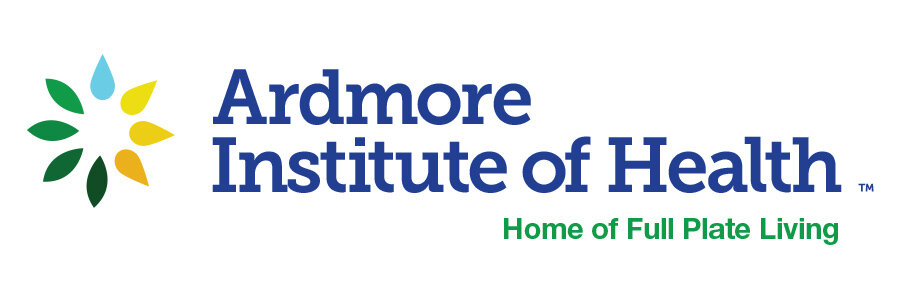Eat Your Immune System Strong
The best defense against various infections is a well-tuned immune system, and there’s a lot we can do to keep it that way.
Studies (1) have shown that our immune system can be strengthened by optimal nutrient levels. A powerful way to strengthen our offense is by making sure our immune cells get a good daily supply of vitamins and minerals from the foods we eat. Plant foods have positive anti-inflammatory effects on the immune system (2), and nutrients from foods consistently demonstrate greater effect than that gained by taking supplements.
Vitamin C
For most people vitamin C means citrus fruit: oranges, grapefruit, lemons and limes. And, yes, they are all good sources, but there are other less famous wonderful C providers as well: kiwifruit, papaya, strawberries, broccoli, Brussels sprouts, kale, sweet red peppers, tomatoes and even baked potatoes.
Vitamin E
Almonds, peanuts, hazelnuts and sunflower seeds are all good sources of vitamin E, as well as their respective nut and seed butters. Other good sources are avocados and dark leafy greens: spinach, Swiss chard, beet and turnip greens, collards and kale.
Vitamin A
Orange fruits and veggies, and leafy greens are outstanding sources (no exaggeration) of vitamin A in the form of beta-carotene. The darker the orange and green, the more beta-carotene present. Orange fruits and veggies include: cantaloupe, mango, papaya, apricots, nectarines, sweet potato, carrots, winter squash, pumpkin. Greens that are a good source of Vitamin A are kale, collards, Swiss chard, turnip greens, spinach, romaine lettuce, broccoli.
Folate (one of the B vitamins)
Especially rich sources of folate are beans (pintos, black beans, chickpeas, kidney beans, etc.), peas (especially black-eyed peas) and lentils, and, again, dark leafy greens. Bananas, avocados, peanuts and sunflower seeds are also good sources of folate.
Vitamin B6
Dark leafy greens, sweet and white potatoes are very good sources of vitamin B6. Avocados, bananas and beans are also good sources.
Zinc
Some of the best sources of zinc are beans, nuts, seeds and whole grains, like quinoa, brown rice, wild rice, oats, popcorn, 100% whole grain breads and pastas.
Iron
Hands down, the best plant sources of iron are beans and dark leafy greens, with whole grains, nuts and seeds right behind. If there is some vitamin C at the meal, you’ll absorb more of that iron. Conveniently, dark green leafies contain vitamin C, but you can also add a squeeze of fresh lemon or lime juice to your greens to up the C and help increase the iron absorption.
Copper
Beans, nuts, seeds, dark leafy greens, sweet potatoes and mushrooms are very good sources of copper.
Selenium
Brazil nuts are the richest plant source of selenium. In fact, they are so loaded with selenium that if you eat too many on a daily basis you can easily get toxic levels in your body. Other plant sources are nuts in general, seeds, beans, dark leafy greens and whole grains.
What foods should you add to get these wonderful nutrients? Here are our top picks:
Beans - 1 cup daily (black beans, pinto beans, white beans, lentils, peas)
Greens - 2 cups raw OR 1 cup cooked daily (spinach, kale, chard, romaine lettuce, cabbage, Brussels sprouts, beet and turnip greens)
Nuts - ¼ cup daily (walnuts, pumpkin seeds, sunflower seeds, peanuts, hazelnuts, almonds) OR 2 tablespoons nut butter (peanut butter, almond butter, walnut butter, no nut butter) AND 1 Brazil nut
Veggies - 2 cups daily (carrots, broccoli, sweet and white potatoes, sweet pepper, tomatoes, corn, cauliflower, zucchini, squash, avocado)
Fruits - 3-4 daily (orange, grapefruit, lemons, limes, berries, kiwifruit, papaya, cantaloupe, apricots, nectarines, banana)
Whole grains - 1 cup daily (cooked brown rice, wild rice, oats, 100% whole wheat pasta) AND 2 slices 100% whole grain bread
In most cases, the best way to get your vitamins and minerals is from whole foods rather than supplements. Why? When you eat whole foods, you’re getting more than just one particular nutrient. You’re enjoying a whole symphony of important vitamins, minerals, antioxidants, phytochemicals, fiber and water---all working together to enable your immune system to do its best work in keeping you healthy.
(1) Gombart AF, Pierre A, Maggini S. A Review of Micronutrients and the Immune System-Working in Harmony to Reduce the Risk of Infection. Nutrients. 2020;12(1):236. Published 2020 Jan 16. doi:10.3390/nu12010236
(2) Zhu F, Du B, Xu B. Anti-inflammatory effects of phytochemicals from fruits, vegetables, and food legumes: A review. Crit Rev Food Sci Nutr. 2018;58(8):1260–1270. doi:10.1080/10408398.2016.1251390



